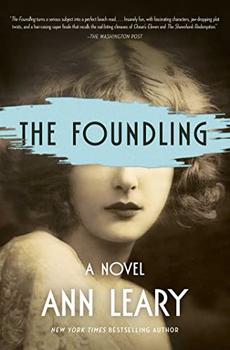Reading Guide Questions

Please be aware that this discussion guide will contain spoilers!
- When we first meet Dr. Vogel on page 7, she uses many dog whistles in her speech that alert the reader that she's talking about eugenics and that her practices and positions betray a dehumanizing view of people with mental disabilities. What phrases did you pick up on as suspicious or concerning? What made them stick out to you? How do you pick up on language like this in everyday life?
- On page 77, Dr. Vogel explains to Mary, "Wild antelope drive the genetically weak, aged, or inferior members away, for the health of the rest of the herd... . Of course, we're not animals... . We must look after our weak and afflicted." How has eugenics historically couched racism, ableism, and sexism in compassion? What remnants can you find in modern-day life and language?
- On page 96, Jake and Mary talk about how women labeled "feebleminded" aren't allowed to marry, and on page 123, Lillian mentions that if Vogel acknowledged that some women didn't have mental defects, she'd have to pay them. Research laws in your state or country surrounding people with disabilities and marriage and labor laws. What parallels do you see between now and a century ago when The Foundling is set?
- On page 140, Mary grapples with the revelation that Lillian is not "feebleminded" and tries to reconcile what she sees as opposing truths. "[Lillian] was so drunk one night that she was raped by one man. Another made her pregnant before she was married. Is that normal? I can't begin to imagine what might happen to her if she were allowed back out on her own again." Discuss Mary's view of these events. Why does she work so hard to discredit her friend on behalf of Dr. Vogel? What role does Mary's guilt play in her journey to understand what's happening at Nettleton?
- In the end, Lillian was killed in the midst of her escape, but her death led to a police investigation and the revelation of conditions at Nettleton. On page 308, a member of the board of trustees, Eloise Howell, says, "The condition in which we found the girls and women ... Well, it's something I'll never forget." Considering one of the board members, Mr. Whitcomb, had perpetrated violence against several of the women at Nettleton and been paid off, do you believe that Eloise Howell and others actually didn't know what was happening at Nettleton? Discuss the responsibility of those in power to ask questions of the institutions they support and profit from.
- Dr. Vogel idolizes female suffragists like Elizabeth Cady Stanton, Lucretia Mott, and Susan B. Anthony. Do some research into their beliefs compared to other contemporaries, such as Anna Julia Cooper. Do you think they would have approved of Dr. Vogel's ideas of "feeblemindedness"? How do your opinions compare to theirs?
- Some of the reasons women were imprisoned in Nettleton State Village and labeled "feebleminded" are very loose or ill-defined, such as "insubordination" or "telling lies." What does this tell you about how they defined not only women with mental disabilities but those without? Could any of these traits of "feeblemindedness" be used against you?
- Nettleton State Village was funded by the government and yet also turned a profit selling dairy products as well as the labor of its inmates. It was also heavily funded by people, like Mr. Whitcomb, who had a vested interest in keeping the institution going. How does this structure rely on exploitation and people in power turning a blind eye? Discuss the ongoing use of penitentiaries as profit systems.
Unless otherwise stated, this discussion guide is reprinted with the permission of Marysue Rucci Books.
Any page references refer to a USA edition of the book, usually the trade paperback version, and may vary in other editions.

 Book Reviewed by:
Book Reviewed by:


